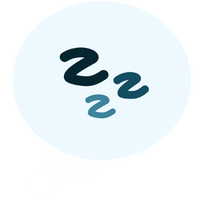We all know that some people can’t properly function without a cup of coffee. But what happens when coffee no longer gives you the energy boost you need to go through the day?
What if, after your daily cup, you feel nothing? And no matter how many cups you take, you’re still groggy, grumpy, and can’t seem to focus on any of your chores.

Caffeine in coffee is the most widely consumed stimulant globally. Sure, it does work wonders for your mental and physical performance. But a deficit of this stimulant will probably lead to stagnated cognitive, social, and behavioral processes.
Below, we’ll discuss some of the main reasons why the caffeine in coffee doesn’t affect you. Plus, we will cover some ways to boost your energy without depending on your coffee boost.
Caffeine: How It Works
Caffeine is naturally found in the leaves and fruits of some plants. It’s also found in some prescription drugs, like cough syrup. The most common sources of caffeine might come down to coffee, cocoa, tea (green and black), energy drinks, and some soft drinks.
As a stimulant, caffeine increases brain and nervous system activity. It also stimulates the circulation of adrenaline and the secretion of cortisol in the system.
Once consumed, caffeine is quickly absorbed into the system and distributed throughout your body, including your brain. This is where the caffeine does its thing – keeping you awake and alert.
How does it do that?
Well, caffeine affects the brain by blocking adenosine receptors. These receptors play a critical role in regulating your sleep/wake cycles. Caffeine binds to adenosine receptors and, in turn, slows down neural activities and triggers sleepiness.
Since caffeine looks very similar to adenosine, it binds to its receptors, blocking the effects of the neurotransmitters. In short, it keeps you alert, and awake.
Caffeine looks very similar to adenosine. When it binds to those receptors, it blocks adenosine from binding with them and triggering your sleep cycle. In short, it keeps you awake throughout.
How Long Does Caffeine Stay in the Body?

The FDA ( Food and Drug Administration) says caffeine has a half-life of between four to six hours.
That implies that 6 hours after drinking coffee or tea, your body will still have half of the caffeine you consumed–keeping you active and alert.
Why Doesn’t Caffeine Affect Me?
There are several reasons you might not experience the effect of caffeine. Here we will discuss the most prevalent reasons.
1. High Level of Exhaustion
Sometimes your body is just too exhausted for caffeine to have any effect on it. The exhaustion affects your body process and potentially reduced caffeine’s stimulating ability.
When you are tired, your body produces higher levels of adenosine because of extended wakefulness and fatigue. As these neurotransmitters increase, they compete with caffeine for the receptors. This reduces its ability to block the receptors and decreases its stimulatory effect.
Additionally, exhaustion influences how the body metabolizes caffeine. It prevents organs responsible for metabolizing caffeine from operating optimally. As a result, it slows the breakdown and removal of caffeine from your system. Thus, you might not feel its effect.
Instead of depending too much on coffee for your boost, address your exhaustion. Figure out the underlying cause of your fatigue. Also, identify effective ways to improve your sleep quality since a good night’s sleep translates to optimal energy levels during the day.
It also helps to manage your stress, maintain a balanced diet, drink enough water, and adopt healthy lifestyle habits.
2. Caffeine Tolerance
The most common reason coffee can’t keep you awake is that you’ve built up a tolerance to caffeine over a long period.
Studies suggest that drinking lots of coffee means that caffeine intrudes on more adenosine receptors. However, the body automatically responds by producing more adenosine receptors, and after a while, adenosine has enough places to bind. Thus, the effects of caffeine are subdued.
As a regular consumer of coffee, your body adapts to its usual effects. Therefore, over time, you might have to increase your intake of coffee or switch to stronger brews just to get the same energy boost you enjoy.
To reduce your caffeine tolerance, reduce your overall caffeine intake or try alternating between regular and decaf coffee. You could also start drinking tea, which has lower amounts of caffeine than coffee.
3. Medication
The effectiveness of the caffeine in coffee might reduce if you’re on certain medications.
Caffeine can interact with other medications, which can reduce its overall effect. Also, some drugs might affect how your liver metabolizes caffeine. And in return, you might not feel the usual kick you feel after your normal caffeine dose.
Sometimes it’s best to stop your coffee intake while on medication if you’re worried about such contradictions.
4. Genetics and Fast Caffeine Metabolism
Your genes help shape your adenosine receptors, which is why some people are naturally more or less sensitive to caffeine. Maybe you’re one of those whose receptors have a very low sensitivity to caffeine, and that is why coffee can’t help you stay awake.
On the other hand, caffeine is metabolized by the enzyme (cytochrome P-450), which differs among different people because of genetics. As a result, some people can metabolize caffeine faster than others.
If you have fast caffeine metabolizing potential, you might not feel the full effect of caffeine. Therefore, you might be inclined to drink more coffee just to get an energy boost.
The downside to this is that it increases your risk of hypertension.
5. Type of Coffee
You might feel like coffee isn’t keeping you awake if you switched from your usual brand or use a different roast.
For instance, the longer the beans are roasted, the more their caffeine content decreases. So, if you were using lightly roasted coffee and switched to a darker roast, you might feel as though the coffee isn’t helping you stay awake.
Additionally, the quality of beans you use for your brew might also affect the caffeine content. Lower-quality beans usually have lesser caffeine content as compared to higher-quality beans. Thus, switching to lower-quality beans might decrease the effect of caffeine on your system.
6. Sugar
If you are one of those people who have their coffee with too much sugar, whipped cream, or honey, you might struggle to stay awake afterward. Instead of experiencing an adrenaline rush, you will experience a sugar crash.
That is because your sugar intake might cause a rapid increase in your blood sugar, and the consequent fall might make you drowsy and tired.
Sugar metabolizes faster than caffeine. Therefore, it overshadows the energizing properties of coffee.
7. Dehydration
Caffeine can be a diuretic, meaning it can help get rid of water and salt in your body. But sometimes it gets rid of more than what is required. That means you’re more likely to take several bathroom breaks after drinking coffee.
If you drink too much coffee without proper hydration, you might experience the effects of dehydration. These include fatigue, dizzy spells, thirst, dry mouth, and skin and confusion. Caffeine can’t keep you awake if you’re dehydrated.
Remember to drink lots of water before and after before or after drinking coffee. This might help you counteract the effects of dehydration.
8. Drinking Too Much Coffee
Sometimes, coffee won’t help you stay up because you’re overindulging. Drinking too much coffee might lead to overstimulation and fatigue.
Also, if you drink coffee too close to your bedtime, it will interfere with your sleep cycle, and in return, you will wake up exhausted and lacking the energy to get you through the day.
What To Do If Caffeine Doesn’t Affect You?

Lower Your Sleep Debt
Sleep debt is how much sleep you owe your body over the last two weeks. If you have a lot of sleep debt, no matter how much caffeine you take, there won’t be any effect because your body is too exhausted.
However, if you can catch up on your sleep and reduce the debt, you might start feeling your coffee kick. The following are some ways you can lower your sleep debt:
- Take power naps during the day. A well-timed nap will make you feel alert promptly and will lower your sleep debt significantly.
- Sleep early. No matter how much work you have, try to go to bed a little earlier on some nights.
- Wake up late. That doesn’t mean you should wake up super late. However, if you can’t get to bed early, stay in bed for longer than usual.
- Maintain good sleep hygiene. These are the habits you maintain throughout the day and at night that help you fall asleep. If you stick to your routine, you might find it easier to fall asleep and reduce your sleep debt.
- Find out your caffeine cutoff time. This is the time of day when you should stop ingesting any coffee. It gives your body time to metabolize caffeine so that it doesn’t mess with your bedtime.
Reset Your Caffeine Tolerance
If you need to increase your coffee intake to feel the energy boost, you’re used to, you might have to readjust your caffeine tolerance.
You could do this by reducing your coffee intake over time. That allows your body to adapt to lower and lower amounts of caffeine. If you are a regular coffee drinker, you could replace one cup a day with decaf coffee.
You might experience some side effects while your body is adjusting because of withdrawal, but with time, they will disappear.
Increase Your Caffeine Intake
This only applies to those who consume negligible amounts of coffee. Increasing your coffee intake slightly might help you get the boost you desire.
Also Read: Why Am I Tired but Can’t Sleep?
Conclusion
As you can see, there are several reasons coffee might not offer you the energy boost your desire. For instance, high exhaustion levels increase adenosine in the brain, which competes with caffeine for receptors.
Also, some people build caffeine tolerance, requiring high amounts of coffee to get the same effect. Let’s not forget genetic factors that influence how people metabolize caffeine.
Luckily, there are some strategies you adopt to address this issue, such as reducing sleep debt and adjusting caffeine tolerance.
Hopefully, you’ve found this peace helpful. In case of any questions, leave us a comment below.
